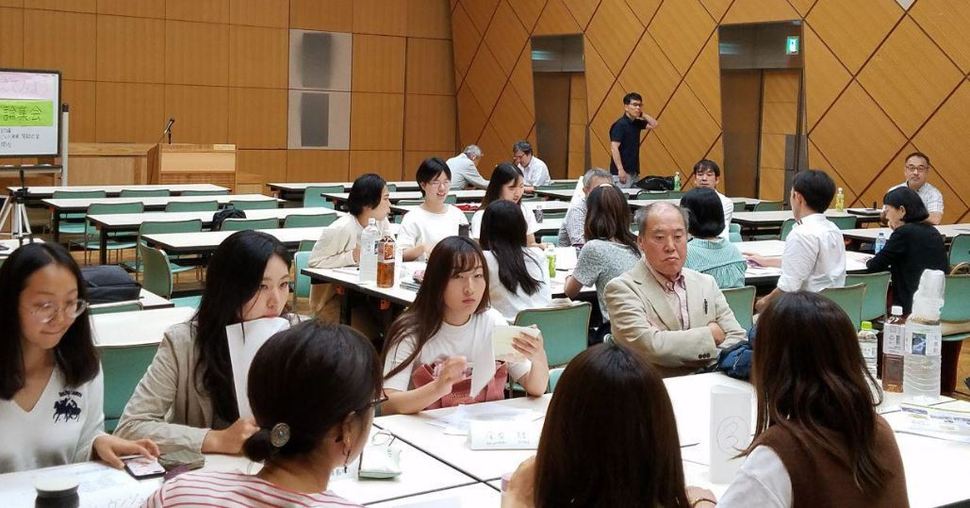 |
|
South Korean and Japanese young people discuss Japan’s forced mobilization of South Korean laborers in Tokyo’s Chiyoda Ward on Sept. 22.
|
Japan’s right-wing news continues to focus on criticizing Korea
“Watching the Japanese news [reporting on the issue of forced labor mobilization during Japan’s occupation of Korea], you get the impression that it’s all the same content. They’re all talking about how awful South Korea is. I get the sense that the South Korean right-wing news is saying the same things as Japan.” A Japanese graduate student surnamed Nakamura brought up the issue of Japanese news reports during a Sept. 22 discussion at Tokyo Shigoto Center in Tokyo’s Chiyoda Ward with the titled “Let’s Think about the Conscripted Labor Issue: Japanese and Korean Youths.” Nakamura, who is working on a dissertation concerning the Korean Peninsula, said, “There’s a strong sense of Japan being a victim in terms of the atomic bombs and the nuclear issue, so Japanese people are likely to support the opposition to nuclear weapons. But when it comes to issues where we’re on the side of the perpetrators, we often look at them as money matters rather than human rights issues.” Another Japanese woman who works in design said, “I often see a lot of anti-Korean reporting on the television. It’s enough to make me wonder how they can say such things to people they’ve never met.” A South Korean student surnamed Han who attends a Japanese-language school said, “There are so many reports about South Korea that I feel almost like I’m there now.” “It’s all just about how terrible South Korea is,” she added. The discussion that day was organized by Joint Action for Resolution of the Forced Mobilization Issue and Settling Historical Matters, an umbrella organization representing Japanese civil society, and brought together around 20 young people from South Korea and Japan in one place. The two groups of young people showed no difference in their basic understanding of the situation. The young South Koreans described arriving in Japan to find that some of their vague predictions about it were different from the reality. Han said, “When I was in Korea, I thought that they didn’t learn anything about history in Japan, but when I came here I saw more content than I was expecting in the textbooks.” “Some of the treatments are short or vague, but there was more written about history than I expected,” she said. Han also said, “In Korea, people want to hear an apology from Japan, but it feels like they don’t think enough concretely about how historical matters ought to be resolved.” A participant surnamed Jeong who works as an intern with a Japanese civic group said, “In my civic group activities, I’ve discovered that there are actually a lot of different issues besides forced mobilization. The question of what ‘colonial rule’ is a difficult matter.” A keynote presentation before the discussion was given by Masaru Tonomura, a University of Tokyo professor whose book “Forced Mobilization of Koreans” has been published in translation in South Korea. “There aren’t any scholars who deny the fact of forced mobilization or the harsh labor that Koreans performed, but I don’t feel like this fact is being really communicated within Japan,” Tonomura said. “Forced mobilization itself took place within a very large structure, with various [different] instances at an individual level,” he continued. “It’s very difficult to establish the facts for certain, and it’s more or less pointless to focus on the question of whether mobilization was forced or not,” he added. “We need to look at the structure of the colonial occupation itself.” By Cho Ki-weon, Tokyo correspondent Please direct comments or questions to [english@hani.co.kr]






